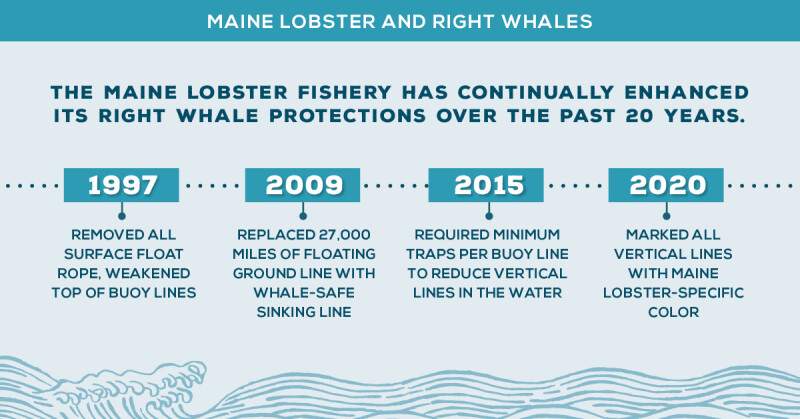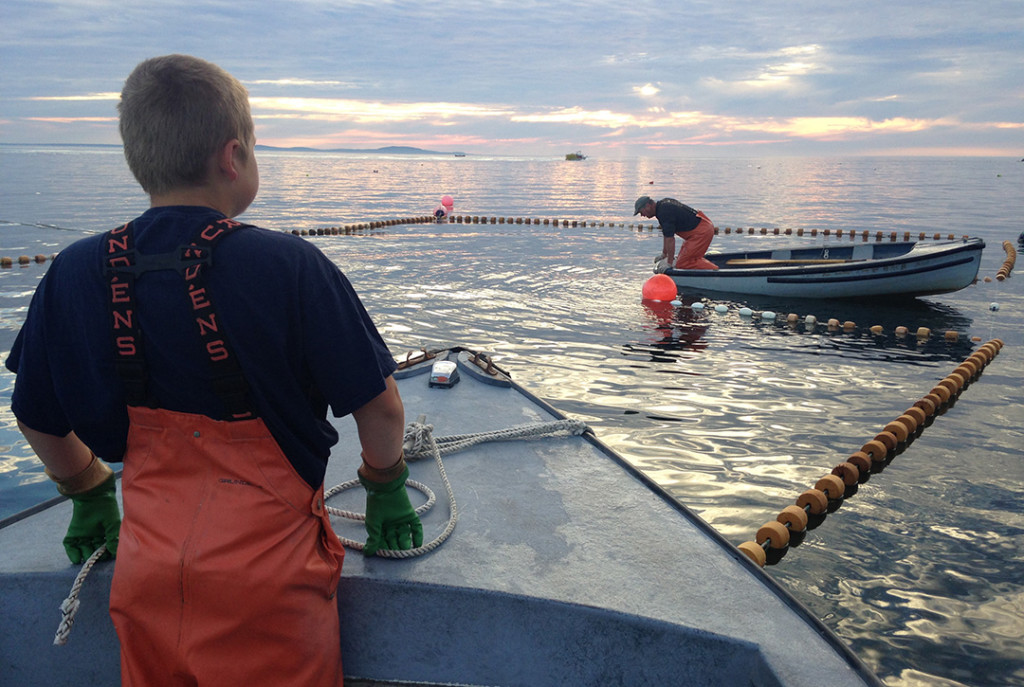On Monday, Sept. 21, the Maine Lobstermen’s Association filed a lawsuit challenging NMFS’ new rule for Northeast lobster and Jonah crab fisheries.
The rule, filed on Aug. 31, is a modification of the Atlantic Large Whale Take Reduction Plan and is supposed to reduce the risk of entanglements to North Atlantic right whales in U.S. waters. The association says the modifications address only the perceived risk of Maine fisheries, which have no documented right whale interactions.
The lawsuit, filed against NMFS and the Secretary of Commerce in U.S. District Court for the District of Columbia, argues that “the federal government’s draconian and fundamentally flawed 10‐year whale protection plan… will all but eliminate the Maine lobster fishery yet still fail to save endangered right whales.” The result would put both fishermen and whales in harm’s way, industry leaders have said.
The push for new rules followed a particularly deadly season for right whales, after their territory extended into Canada’s Gulf of Saint Lawrence in 2017. The Canadian shipping industry and lobster and crab trap fishing fleets had not yet undergone the same scrutiny or modifications of the U.S. northeast fleets because the likelihood of whale interaction was not considered to be a threat.
Maine lobstermen, on the other hand, had begun making voluntary gear modifications in 2009. Northeast U.S. fleets began to worry they would be targeted to make up for Canadian losses since it can be difficult to track gear entanglements without international standards on gear modifications or a better understanding of damages caused by ship strikes, which largely go unseen.

“NMFS is targeting Maine lobstermen because it is easy. We’re a bunch of small, owner‐ operated businesses. Taking on Canada and the shipping industry is hard,” said Kristan Porter, president of the Maine Lobstermen’s Association and a lobsterman based in Cutler, Maine. “Maine lobstermen understand the need to protect right whales, but if NMFS really wants to save right whales, they should be going after the things we know are actually killing them rather than dismantling our fishery piece by piece.”
As Gulf of Maine waters warmed, the whales’ migration pattern changed, sending them farther north in search of food and into occupied fishing grounds.
In 2017, there were a total of 17 confirmed dead stranded right whales, and 12 of those were in Canadian waters, according to NMFS. Ten of 12 domestic incidents since 2017 — 83 percent — have been attributed to ship strikes. None can be linked to the Maine lobster industry.
Following that deadly 2017 season, the Gulf of Saint Lawrence snow crab fleet lost its MSC certification — issued in 2013 — and has yet to regain the ecolabel’s approval.
The losses sparked a lawsuit — Center for Biological Diversity v. Wilbur Ross (then-Commerce Secretary). U.S. District Court Judge James Boasberg ruled that NMFS’ management of the American lobster fishery was in violation of the Endangered Species Act and gave the federal agency nine months to address its shortcomings and reduce the risks of whale interactions.
Maine Gov. Janet Mills announced, also on Monday, Sept. 27, that her office would be intervening in the 2018 lawsuit to fight for Maine’s lobster fishery.
“NMFS got it wrong. The science does not support the agency’s plan. Using worst case scenarios that hold Maine lobstermen accountable for right whale deaths occurring in Canada won’t help protect right whales, but it will decimate Maine’s lobster industry,” said Patrice McCarron, executive director of the Maine Lobstermen’s Association.
The Maine Lobstermen’s Association, established in 1954, is the oldest and largest fishing industry association on the U.S. East Coast.







